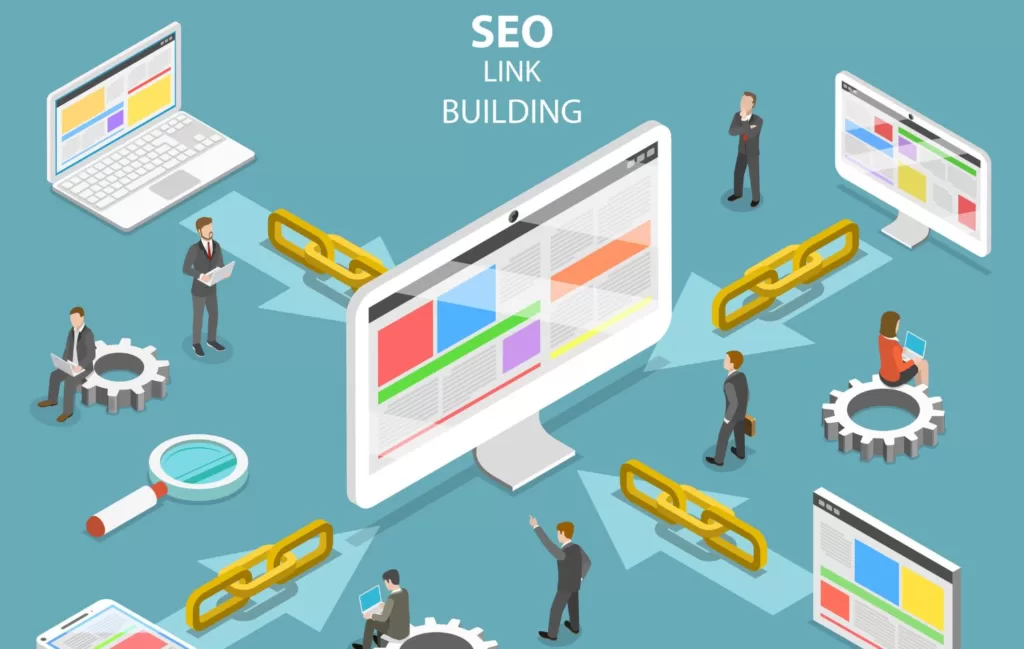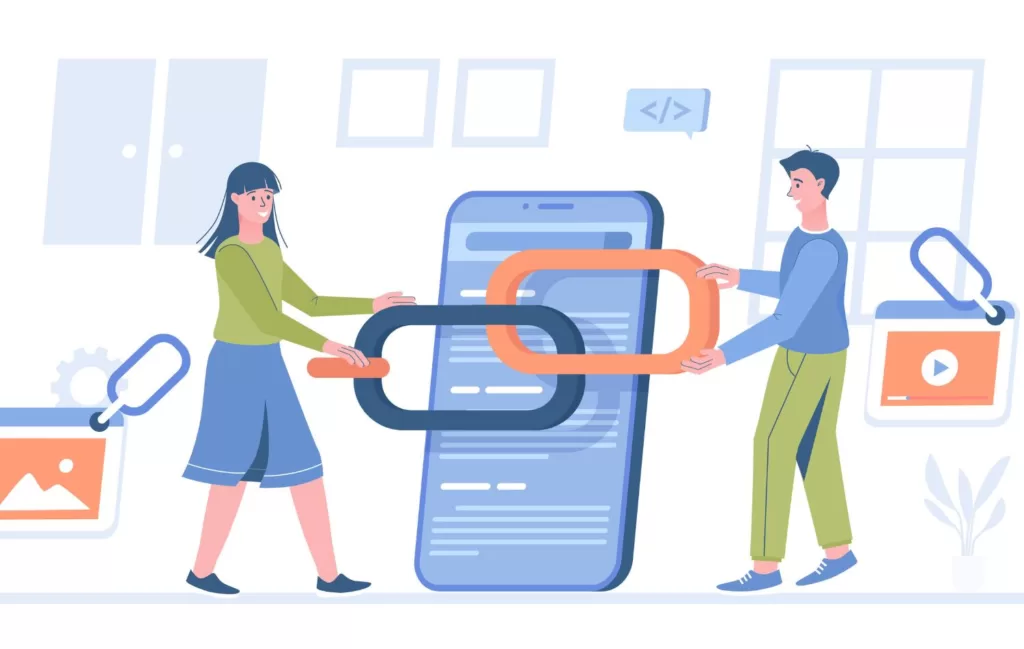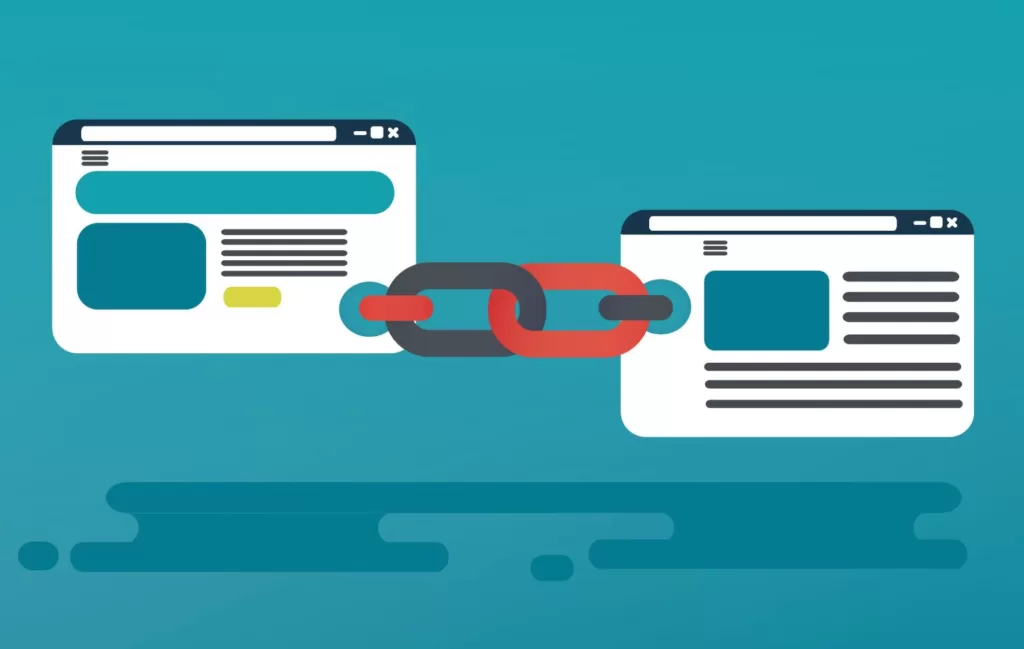What is Link Building in SEO?

Link-building in SEO is a way to construct one-way hyperlinks to a website to enhance your overall search engine visibility. If you’ve recognized these familiar terms—backlinking and interlinking—then you are familiar with link-building since those are two of its components. These tactics can be utilized across multiple methods that build one-way or a referral hyperlink so that prospective clients can find your website and purchase services much easier.
Methods of Link Building

Developing an effective link-building strategy isn’t easy, so finding the best method is key to success. Here are some methods for link-building:
- Content Marketing is beneficial when you create evergreen content that adds long-term value to your blog.
- Guest blogging is another option to build shareable links and post relevant infographics without putting in the elbow grease.
- Utilizing Link-building tools helps you identify and acquire the highest quality backlinks for your chosen topic.
- Ensure you’re offering useful products and services
- Email Outreach can be useful if the email is well-written and personable so that it entices the person receiving the email. With this method, be sure to elaborate how you will improve the user experience of visitors to their site.
- Broken Link-Building is a useful tactic that takes advantage of broken pages across the web by discovering dead pages and asking linkers to swap links to a working page on your site.
- Public Relations link-building methods include press releases and media pitching to secure editorial links that are directed straight to your website.
Creating the Best Link Building Strategy

There are multiple tactics that bring benefits to your link-building strategy.
First and foremost, crafting something that is “link-worthy” should be #1 on your SEO agenda.
Once that’s done, move forward with the following link-building recommendations:
- Proper outreach to those who see your product/service as useful is who you should target. Don’t send a generic mass email to anyone; instead, stick to who will value your business. For example, utilize those who mentioned your target keywords in their article or who linked similar articles with a similar product/service, since that will result in higher response rates.
- Serve as a guest blogger by reaching out to businesses and offer free written content to potentially bring them more visitors to their site.
- Identify broken links and pages on a website so you can create valuable content to that resource. It’s better to connect content to a working site rather than a dead one.
- Link unlinked mentions by using various tools to identify which links yours would be best paired with.
- Look for lost links by reaching out to the prior contacted business and see if your link would be better suited somewhere else on their website.
- Use list posts since bite-sized, easy-digestible content brings more value to the reader than large, hard-to-read paragraphs.
- Utilize links from mediocre pages IF you believe your content is better than theirs. Make sure to check the links and then add them to yours.
- Use paid promotions for linkable assets to provide value about your products/services to target audiences.
Link Building Tactics to Run Away From

While there are some tactics that are go-to’s, there are some to stray away from.
- Buying links is a tactic that is against Google’s SEO guidelines. It’s advisable to stay away from it, as it may come with repercussions.
- Paying for each link-building opportunity is very costly and racks up quickly. The average private blog price is $350; you do the math.
- Not checking and verifying the authority of the site can cause major issues because if you don’t understand your site’s credibility, you won’t know how you compare to the competition.
- Not considering the link’s position on the page is something to highly consider! Is it embedded in the content? Is it buried in the footer? Make its location a priority.
- Initiating cold outreach and mass-emailing potential links can have negative effects as a mass email has a more generic copy/paste feel. It’s best to cater the content for each point of contact so they don’t feel ignored.
Why is Link Building Beneficial?

First off, link-building leads to higher site metrics and a stronger SEO score—this brings more people to your site and helps your business.
Since backlinks remain as Google’s first choice ranking signal, it makes sense to see why it’s useful to link with reputable, popular websites. Leverage quality over quantity when it comes to making a positive impact in today’s search engine realm. Also, why not stick with something if it brings beneficial professional relationships with it? Backlinking brings continued opportunities to build and grow your business, create brand familiarity, and generate product awareness on partnering websites.
There’s no better feeling than bringing back more traffic to your website!
Is Link Building the Same as Backlinking?
While both terms are popular tactics for SEO, they have slight differences. Link Building is creating links to your website from other websites. Backlinking is linking content from one website to a certain page on another.
Don’t Be Afraid to Build a Link with Us!
Implementing link-building strategies into your SEO is a time-consuming process that requires lots of attention and commitment. Making sure you work with someone who can put the effort and time into it that will generate the best results. Let our team of SEO experts help you get there.
By staying updated on current digital trends and knowing what will get the customer to your website, our team leverages cutting-edge SEO and link-building tools to launch a successful strategy that aligns with your specific industry and niche product/service.
Contact us today to get started.

